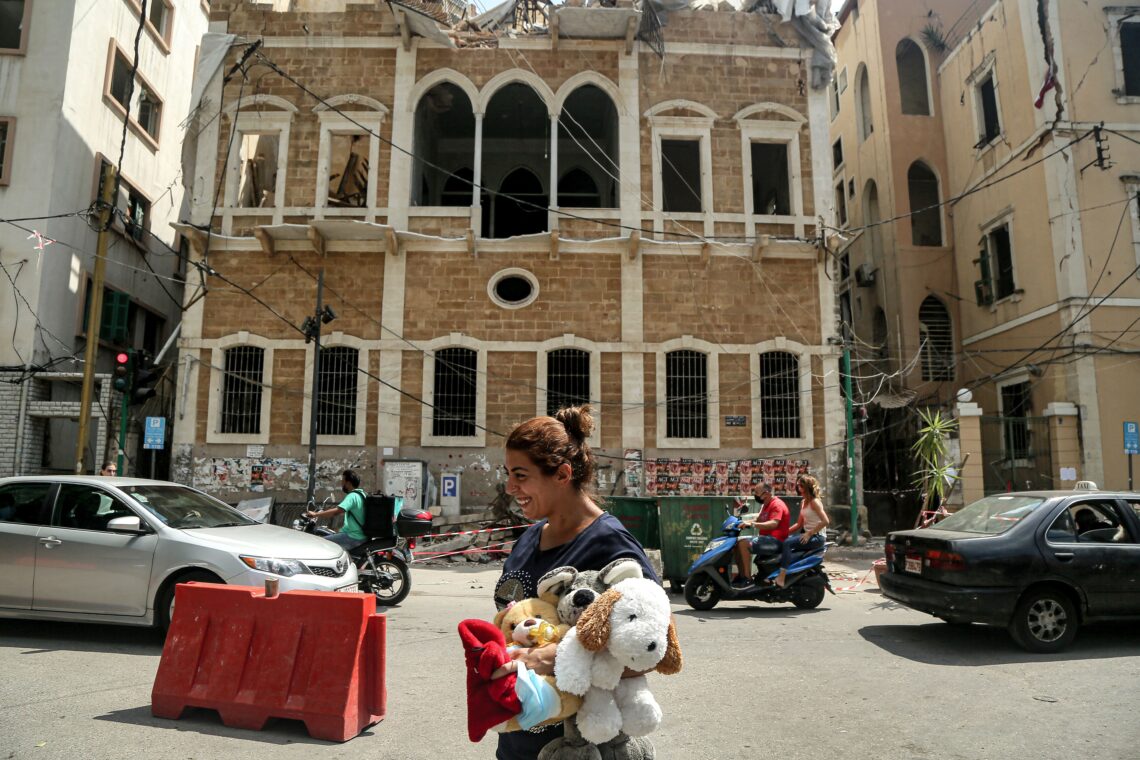Lebanese tragedies and hope
In its struggle to oppose a corrupt government backed by Iran, Lebanon has received little help from the West. In the aftermath of the explosion of August 4, more than financial assistance will be needed.

The terrible blast in the harbor of Beirut killed hundreds of people, injured thousands, and destroyed a great number of dwellings. The world was shaken by the event. But it is not only the blast that should have shocked the world – in recent years, this beautiful country and its warm and industrious people have faced much hardship.
Empty words
Maronites, Druze, Christians and Shia Muslims used to peacefully coexist in Lebanon. Unfortunately, the former “Switzerland of the Middle East” became engulfed in regional turbulence three decades ago. Syrian expansion and Israeli interests turned the country into a battlefield. The brave Cedar Revolution shed off the Syrian occupation in 2005, rekindling hope for peace.
However, Hezbollah, a majority-Shia terrorist group, gained a decisive position in the Lebanese government thanks to Iranian support. Supplied with modern weapons and missiles, the organization is also a threat to Israel. In Lebanon, the result was corruption, state capture and widespread mismanagement. Inflation is high and a good part of the population lives in poverty. The Lebanese courageously began to oppose the regime last October but did not receive adequate support from the West.
Unfortunately, Lebanon is highly sensitive to influence from Iran.
French President Emmanuel Macron of France and German Minister of Foreign Affairs Heiko Maas visited Beirut after the blast. Both promised help and warned authorities against corruption. One might think such visits helpful – Lebanon should certainly receive financial assistance. However, a closer look at the two foreign officials’ actions reveals a rather cynical attitude.
Carte blanche
Unfortunately, Lebanon is highly sensitive to influence from Iran. Iran has spread civil war and terrorism throughout the region, especially via its Hezbollah proxies in Beirut. In Yemen, the tragic armed conflict is largely attributable to Iranian intervention, which continues to this day. General Qassem Soleimani, who was killed in a U.S. strike last year, was one of the masterminds behind such activities. Lebanon and Yemen are only two examples of this systematic destabilization of the region. Iran’s declared goals are to destroy Israel and wage war on the U.S., but it is also plotting to install a new regime in Saudi Arabia.
Tehran developed its nuclear capacities, including installations to build atomic bombs, to increase its foreign policy clout. The West was rightfully concerned but reacted in a bizarre manner, to the detriment of Middle Eastern countries. Iran was subjected to sanctions so that it would denuclearize, but it was not requested to halt its subversive terrorist activities. The negotiations took place with the five permanent members of the UN Security Council (the U.S., the UK, France, Russia, China) and Germany. None of the concerned neighboring countries (Saudi Arabia, the United Arab Emirates, Turkey) were included.
The establishment of diplomatic relations between the United Arab Emirates and Israel is an encouraging signal.
The 2015 Joint Comprehensive Plan of Action (JCPOA) was implemented. It slowed down Iran’s nuclear activity but did not stop it. This was hailed as a resounding success in Washington and European capitals. There was no word on stopping state-sponsored terrorism. Sanctions were reduced and Tehran was de facto given carte blanche for its interventions.
Messrs. Macron and Maas should keep this in mind when dispensing “good advice” in Beirut. When Washington reintroduced sanctions and canceled the JCPOA, on the very valid grounds that Iran was backing terrorist groups like Hezbollah, France and Germany sided with Russia and China to rescue the plan. The EU even threatened European businesses with punitive actions for discontinuing trade with Iran. Regardless of whether sanctions were the best course of action, Europe ought to have supported Washington in its attempts to stop Iranian terrorism and illicit interventions instead of kowtowing to Tehran.
The good news is that countries threatened by Iran are becoming more aligned. The establishment of diplomatic relations between the United Arab Emirates and Israel – an act of realpolitik – is an encouraging signal.
The regime in Iran will only understand clarity and firmness. Europe’s diplomatic wheeling and dealing will inevitably lead to more violence. The best European powers can do for peace in the Middle East is to help countries like Lebanon, and take a tough stance against the expansionist terrorism of the leaders in Tehran.
